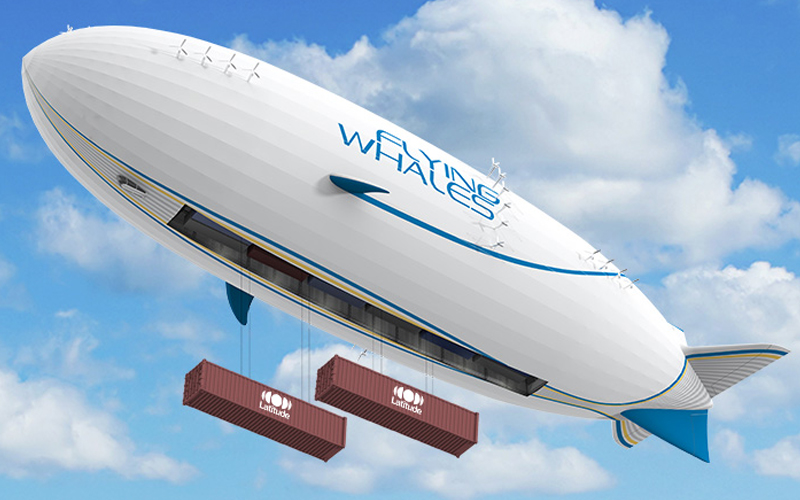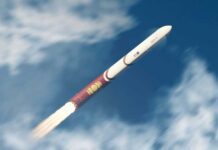
French launch startup Latitude (formerly Venture Orbital Systems) has signed a memorandum of understanding with Flying Whales to explore utilizing a rigid airship as a rocket transportation vehicle.
Flying Whales was founded in 2012 with the aim of developing a large-capacity airship capable of carrying 60-ton payloads. The LCA60T airships will be 200m in length and 50m in diameter. The vehicle’s cargo bay measures 96m (length) by 8m (width) by 7m (height). The airship is kept aloft with 14 unpressurized helium cells and utilizes seven “propulsion points” to reach a max speed of 100km/h. The first Flying Whales airship is expected to be operational in 2027.
Latitude will utilize LCA60T airships to transport Zephyr rockets from its production facility in Reims, France to SaxaVord Spaceport in the United Kingdom. The airships will be loaded and unloaded while in stationary flight, reducing the need for significant ground infrastructure.
“Once we are transporting our microlauncher with this airship, Latitude will use a service almost cancelling the use of heavy infrastructures such as airports and roads while highly reducing CO2 emissions,” said Latitude CEO Stanislas Maximin.
In addition to Latitude, Flying Whales is also working with ArianeGroup. The launch powerhouse has explored using the LCA60T airships as a novel approach to recovery of its Themis stage demonstrator from a floating recovery platform.







